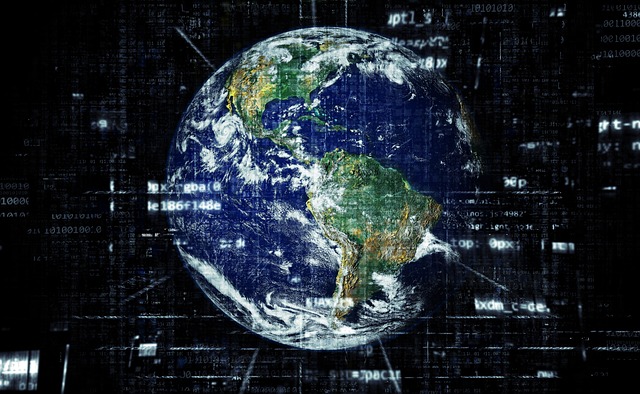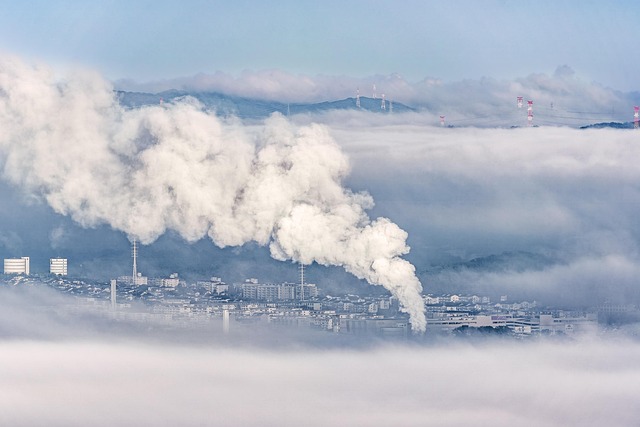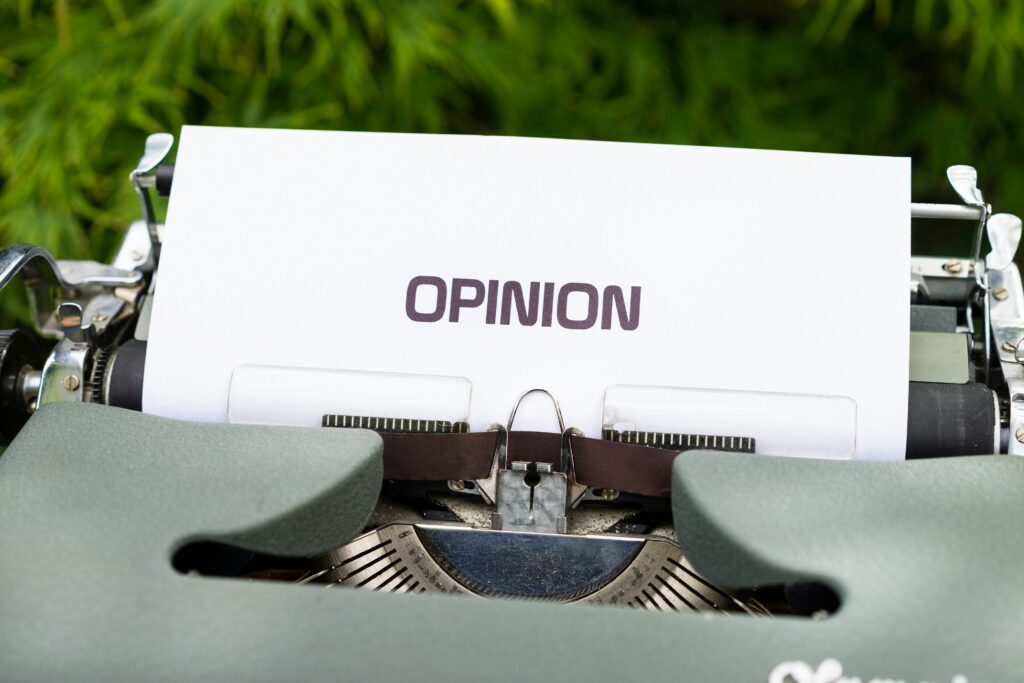The Power of Perspective
In a world increasingly split along ideological, cultural, and geographic fault lines, single-story narratives don’t just fall short—they risk doing harm. That’s why multiple viewpoints aren’t a luxury. They’re critical. They challenge assumptions, surface blind spots, and force a reckoning with the full complexity of an issue. In the op-ed space, where opinions carry weight and influence that outlasts the news scroll, that diversity of thought becomes even more vital.
Different perspectives don’t just add color—they shift outcomes. When decisions are made inside echo chambers, policies fail harder and systems cave faster. But when dissent and nuance are built into the thinking process, solutions become more comprehensive and resilient. The strongest ideas are tempered by disagreement, not immune to it.
For opinion writers, this means stepping up. You’re not just adding your voice to the pile. You’re shaping how others frame the world. That comes with obligation. The job isn’t to preach to the choir, or to go viral for the sake of it. It’s to provoke thought without stoking division—to open the door wider, not slam it shut. People are listening. The question is: what are you helping them hear?
Climate Change: One Crisis, Many Realities
There isn’t one climate story—there are thousands. And where you’re standing shapes which version you live. In the Global South, the question isn’t whether climate change is real. It’s how to survive it. Rising sea levels, vanishing crops, flash floods—these aren’t distant threats. They’re the daily grind. Local communities are adapting fast, not because it’s trendy, but because it’s urgent. Their innovations—like low-cost solar cooperatives or indigenous farming techniques—are born from necessity, not policy.
Meanwhile, the Global North often frames climate action as a lifestyle choice, or a budget line. But that same North holds most of the capital, the power, and the platforms. The risk is that their narratives dominate the conversation while the South shoulders the impact. We can’t afford that imbalance. It breeds resentment, and it obscures the creative, frontline solutions already being tested elsewhere.
The heart of the issue is the tension between economic growth and environmental survival. Wealthier nations debate carbon taxes. Poorer nations ask how to electrify a village without pushing emissions. It’s not just a policy gap—it’s a lived reality gap.
The way forward? Let local voices lead. Climate strategies that ignore regional experience are dead on arrival. The global response needs to be built from local knowledge upward, not the other way around.
Economic Inequality: Who Gets to Speak?
The inequality we talk about in economics isn’t confined to bank accounts and job markets—it bleeds into who gets heard, and who stays invisible. In the media space, a handful of major outlets still control much of the narrative. They have the resources, the platforms, the reach. But their perspective tends to echo a narrow bandwidth of lived experience—urban, western, affluent. That leaves a wide swath of people underrepresented, or worse, misrepresented.
The digital divide sharpens this distortion. If you don’t have high-speed internet, a quiet place to record, or the right gear—or if you’re just juggling three jobs to survive—your chances of building a media presence drop fast. And yet, that’s where grassroots media steps in. Vlogging, podcasting, and indie journalism level the field, at least partially. Lower barriers to entry mean voices from villages, inner cities, war zones, and borderlands can break through, powered by nothing more than a smartphone and grit.
These aren’t just personal stories—they’re counterpoints to mainstream narratives. A TikTok echoing the reality of farmworkers tells you more about food systems than a polished op-ed in a national paper. A local podcast dissecting education gaps with lived-in nuance has power the data alone can’t match.
We’re seeing a shift: trust is migrating toward authenticity. Institutional media still sets the agenda, but it no longer controls the discussion. When people see themselves reflected—not just reported on—they pay attention. That’s the quiet revolution happening through DIY creators and community-driven channels. They’re not just filling gaps—they’re rewriting the map.
Public Health: A Story Beyond Borders
The pandemic didn’t hit everyone the same way—and the responses varied just as widely. Countries like South Korea and New Zealand leaned on rapid testing, centralized communication, and public compliance with health guidance. Others struggled under systems already stretched thin or hampered by political missteps. No one had a perfect response, but the global scramble served as a stress test for policy agility and public trust.
Cultural attitudes played a quiet but decisive role. In some regions, collective responsibility trumped individual preference, driving mask adoption and social distancing with minimal pushback. Elsewhere, skepticism toward government and science meant inconsistent messaging and lower adherence to protective measures. These differences have long tails: they impact how people perceive vaccines, public health campaigns, and even science itself moving forward.
Then there’s access. Even today, vaccine equity lags behind for many low-income countries—not due to lack of need, but because of pricing, patents, and logistical neglect. Healthcare tech follows the same pattern. The digital divide isn’t just about bandwidth or devices; it’s about who gets to benefit from telehealth systems or real-time public health data. When the next global crisis arrives—and it will—better outcomes will demand more inclusive infrastructure and trust-building from the ground up.
Migration and Displacement: Friction at the Fault Lines
The global story of migration isn’t new, but it’s gaining sharper edges. In a world where borders are increasingly digitized and politicized, the socio-political visibility of migrants and refugees has never been more critical—or more contested. Faces once overlooked are now central to elections, policy debates, and nightly news cycles. But visibility doesn’t guarantee dignity. Often, it’s a spotlight turned interrogation lamp.
Much of the discourse lands in a showdown between two forces: nationalist rhetoric and human rights frameworks. One calls for tightened borders, cultural cohesion, and economic protectionism. The other demands open arms, compassion, and legal protections grounded in international law. And caught in between are the individuals—fleeing conflicts, floods, or famine—trying to navigate systems not built with them in mind.
Then comes the economic argument. Some say an open-border approach threatens strained job markets and public services. Others point to aging populations and shrinking labor pools, arguing that welcoming migrants isn’t just humanitarian—it’s strategic. Layer in the political weaponization of fear, and you get policies driven more by headlines than facts.
Reconciling these tensions takes more than posturing. It involves listening to lived experience, examining uncomfortable truths, and recognizing the limits of black-and-white thinking in a gray-zone issue. Migration is not a problem to solve—it’s a global reality to engage with, responsibly and humanely.
The New Role of the Citizen Commentator
The op-ed space isn’t just for journalists and academics anymore. Everyday individuals—vloggers, bloggers, tweeters—are increasingly stepping into the role of public thought leaders. They’re using whatever platforms they have to dissect current events, offer local insights, and weigh in on global debates. You don’t need press credentials to have influence now. What you need is a point of view, a platform, and a commitment to showing up.
Vlogging gives viewers a face and a voice—adding emotional weight where print can’t. Twitter threads boil complex ideas into accessible bites. Self-published posts on Substack, Medium, or LinkedIn serve as mini-op-eds that skip the gatekeepers. These tools are morphing into modern-day public forums. And while that democratization is powerful, it comes with strings.
With more voices comes more noise. Sounding off without research or context can cause real-world harm. That’s why discernment and accountability matter more than ever. If you’re going to speak on topics that affect lives and policy, knowing your facts isn’t optional—it’s your duty. Influence without integrity is just noise in a loud room.
For more on crafting authentic, persuasive opinion pieces, check out The Art of Persuasion: Writing Compelling Opinion Pieces.
Why All of This Matters Right Now
Complexity Requires Complexity
We are living in a time of overlapping crises—climate disruption, economic instability, global health disparities, and rising political tensions. In such an interconnected world, single-lens solutions don’t just fall short; they can be dangerously misleading.
- Every problem is entangled with others
- Simple narratives no longer suffice
- Multi-dimensional thinking isn’t optional—it’s essential
The Echo Chamber Effect
Digital platforms meant to connect people have instead created segmented realities. Algorithms reinforce what we already believe, limiting exposure to alternative viewpoints.
- Social media feeds often serve more confirmation than conversation
- Polarization increases as viewpoints harden within insular groups
- Engagement metrics reward outrage, not understanding
Diversity as a Survival Tool
Bringing a wide range of voices to the conversation isn’t just a moral imperative—it’s a strategic necessity. Complex problems demand insights that only lived experiences and diverse expertise can provide.
- Diverse perspectives challenge assumptions and spark innovation
- Communities facing the brunt of global pressures often have the most practical solutions
- Inclusivity makes governance and policy more resilient and credible
In Summary
The world isn’t black and white—and our public discourse shouldn’t be either. As we move through uncertain times, the willingness to engage with complexity, ask harder questions, and include more voices may be the only way forward.
Final Takeaway: Listen Wide, Speak Wisely
Disagreement isn’t failure—it’s fuel. If everyone at the table agrees, you’re probably not solving much. Progress depends on friction: competing ideas, constructive debate, and the discomfort of being challenged. Invite it. Welcome it. Learn to sharpen your point without dulling someone else’s.
But there’s a line. Curiosity beats outrage. In a world built on scrolls and hot takes, it’s easy to trade understanding for reaction. Don’t fall for it. Stay informed, not inflamed. Discernment is rare and powerful, like a steady light when the feed turns into a wildfire.
The internet doesn’t need more noise. It needs more signal—clear thought, earned insights, and genuine intent to understand. Whether you write, vlog, post, or speak, choose to raise the conversation, not the temperature.


